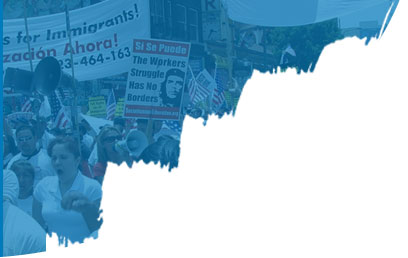
Four Stages of Recovery from Trafficking
Individuals who escape or are rescued from trafficking have a real chance to live productive, healthy lives; that said, there is a recognized process that the vast majority, if not all, will go through before they can feel like they have fully joined society. This process is categorized by the following four stages.
Victim – This is a person who is actively being trafficked, meaning they are being forced to sell their bodies, do domestic or factory work, sell drugs, et cetera. They often suffer emotional and physical abuse at the hands of their traffickers and those conspiring with them; many are also manipulated by the promises of money or affection and/or threatened with deportation or imprisonment. Many victims became dependent on drugs, either as a means to cope or because they are forced to by their traffickers. Like many victims of abuse, they are constantly on edge and will do anything to appease their traffickers in order to avoid punishment. They may not know they are being victimized and in fact believe the trafficker cares for them.
Usually we hear of victims being trafficked by strangers, either online or in their communities. It’s important to know, however, that some are preyed upon by people they know, even their own relatives. On the other hand, victims, particularly those who have been forced into criminal behavior, are often blamed or even shunned by family members who don’t understand the complex dynamics of trafficking and the methods traffickers use (i.e. emotional manipulation) to get victims to do their bidding. This lack of support by loved ones will be an additional hurdle victims need to overcome during the recovery process.
Survivor – This is a person who has been removed from the trafficking situation, either through escape or because they were rescued by others or law enforcement. Though they are now physically safe, they are still mentally imprisoned by their experience, which can manifest as PTSD symptoms such as nightmares and flashbacks of times they were beaten or otherwise abused. They may also feel guilty for things they were forced to do while trafficked. While they probably realize that their traffickers are criminals and ill-intentioned, they may also feel conflicted and consider going to back them – this could be a result of the emotional manipulation, access to drugs, and feelings of unworthiness. At the same time, there is hope for the future – they are probably back at home and/or school and are beginning to be reintegrated into society.
Thriver – At this stage the person’s inner world has begun to catch up with their new, more positive outer reality, oftentimes as a result of professional counseling. They have moved past any guilt and shame they felt at being trafficked, and fully understand that the sole fault lies with the trafficker. That said, they also recognize what made them vulnerable, be it a history of abuse or neglect in the home; low self-esteem; financial need; et cetera. Just as important, they have come to value their strengths and celebrate how far they have come. They have also learned a number of coping skills they employ during the healing process – including how to build and maintain healthy relationships, both personally and professionally.
Victor – This person has truly processed their experience so that it no longer encompasses their identity or their entire story. They have taken stewardship of their lives and understand that they have the ability to create their future. Relationships and trusting others comes more easily, as they recognize their own personal power to establish boundaries and walk away from people who do not have their best interests at heart. Many victors also feel the need to mentor and reach out to other victims of trafficking, serving as both sounding boards and role models for what is possible.
These categories will not necessarily fit every trafficked person, nor are there set timelines for any particular stage. As is the case with any traumatic experience, each journey is different, depending on the individual, the age at which they were trafficked and how long the trafficking continued. One person may be living in survivor mode for years, while another is able to move beyond this stage more quickly. What is important is that everyone gets the love and support they need and deserve along the way.
In our next post we will explore the critical roles education and mentorship play in empowering survivors to move forward, take ownership of their lives, and pursue their dreams.
